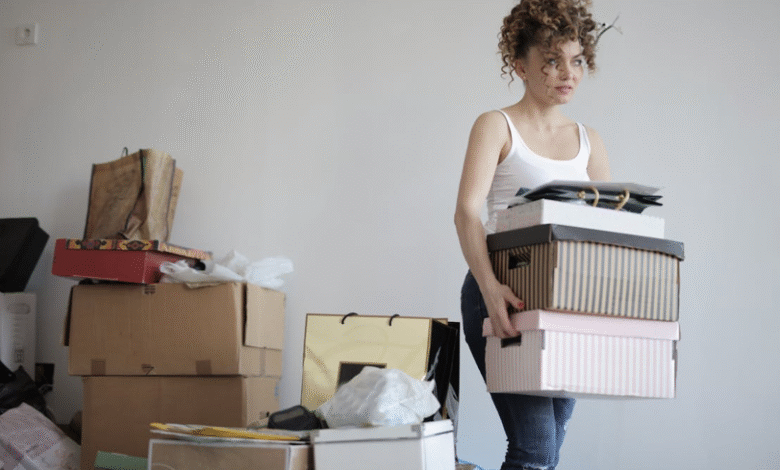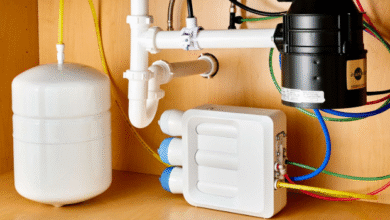How to Budget for a Cross-Border Move

Have you ever dreamed of starting fresh in another country, but felt overwhelmed by how much it might cost? A cross-border move is exciting, but it comes with big responsibilities—especially when it comes to budgeting. Without a clear financial plan, costs can build up quickly and unexpectedly. From transportation and shipping to housing and documentation, there are many things to think about.
In this blog, we will share how to create a smart budget for your cross-border move. Each section will help you think through your spending and make informed choices.
Research the Cost of Living in Your New Country
Before anything else, learn how much it costs to live in your new home country. Every place is different. What might be affordable in one country could be expensive in another. Start by looking into the basics—rent, groceries, transportation, healthcare, and education if you have kids. Online tools and expat forums can help you compare the cost of living between your current country and the one you’re moving to.
Once you understand how much everyday life costs, you can set a realistic monthly budget. This helps prevent surprises after you settle in. If possible, reach out to people who already live in your target country and ask about their experiences. They can provide real examples and help you spot hidden expenses. Keep in mind that your lifestyle might need to change based on local prices. By learning about these costs early, you’ll have a strong foundation for your moving plan.
Factor in Moving Expenses and Shipping Costs
Now that you know the cost of living, it’s time to think about the move itself. Cross-border moving is more than just packing a few boxes. You’ll likely need professional help. Start by getting quotes from companies that offer international moving services. These companies handle customs paperwork, packing, shipping, and delivery to your new address. The price varies based on the size of your move, how far you’re going, and how fast you want your items delivered. Make sure to compare multiple quotes and read reviews.
In addition to moving services, you might need to pay for extra fees like storage, special packing materials, or insurance for high-value items. Some countries charge import taxes or customs duties on personal goods. Ask your moving company if these charges apply to your situation. Don’t forget smaller costs like buying suitcases, mailing items separately, or paying for help at both ends of the move. Adding all these pieces together gives you a clear idea of how much the move will cost.
See also: Budget-Friendly Solutions for Home Makeovers
Plan for Travel and Temporary Housing
Getting yourself and your family to the new country is a major cost you’ll need to include in your budget. Airfare isn’t cheap, especially if you’re buying multiple tickets or need to book during a busy season. Prices also rise when you bring pets or have extra baggage. Look for deals early and sign up for alerts from travel websites. Planning ahead can save you a lot of money. Consider whether it’s cheaper to fly directly to your new city or make stops along the way.
Once you arrive, you might not move straight into your permanent home. In many cases, you’ll need to stay in a hotel, Airbnb, or short-term rental for a few days or weeks. This gives you time to get settled, explore neighborhoods, and find a long-term place that suits your needs. Temporary housing can get expensive fast, especially in large cities. Make room for these costs in your budget so you’re not caught off guard. It’s better to overestimate this part than to run out of funds mid-transition.
Include Visa, Legal, and Documentation Fees
A big part of any cross-border move is getting the right paperwork in place. This includes visas, residency permits, and possibly work authorizations. Each country has its own rules and fees, and these can add up quickly. Depending on your situation, you may need to pay for background checks, translations, notarized copies, and even legal assistance. Research exactly what documents are needed and how much each step costs in advance. If you’re moving for work, check whether your employer will cover some of these fees.
Hiring an immigration consultant or lawyer can be helpful if the process is complicated. While it adds to your upfront costs, it can save you money and stress later. Some countries also require health screenings or vaccinations before granting entry. Be sure to include those costs in your budget too. If you’re bringing a pet, research pet import rules and required certificates. Paperwork is often one of the first and most important steps in your move, so don’t leave it to the last minute—or out of your budget.
Budget for Housing Deposits and Setup Costs
Finding a new home abroad can feel exciting—but also costly. Most rental homes require a deposit, which is often equal to one or two months of rent. On top of that, some landlords may ask for the first and last month’s rent upfront. That’s a large chunk of money to pay all at once. Be sure to save for this in advance. It’s a big part of your moving budget. Keep in mind that your credit history may not transfer across borders, so you might need to pay more if you don’t have local references.
Beyond deposits, think about what you’ll need to buy to set up your new home. You may need furniture, kitchen items, bedding, and cleaning supplies. Even simple things like curtains, hangers, and light bulbs can add up. If you’re renting a place that’s already furnished, the setup might be easier, but still not free. You may also need to pay for utilities like electricity, gas, water, internet, and trash pickup. Check if these are included in your rent or if they come as extra bills each month.
In conclusion,a cross-border move is a big life change that takes careful planning. Budgeting helps you feel ready, instead of overwhelmed. By thinking through each expense and making space for the unexpected, you create a smoother path to your new life abroad. It’s more than numbers—it’s about being smart with your choices so you can focus on what matters most: settling in, making memories, and enjoying the journey. When you move with a clear plan, every step becomes more manageable—and more rewarding.




